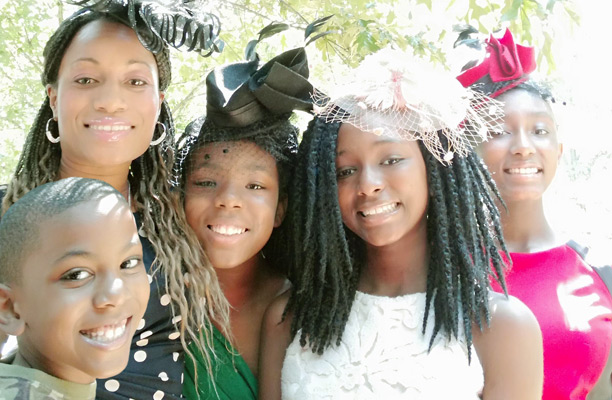
Sunni Williams had always been involved in community service. She volunteered at a “feed the homeless” ministry and co-founded an afterschool reading program for at-risk youth, Youth Angels.
And Sunni thought that someday, when she was married, she might adopt a child from foster care.
But Sunni’s timeline accelerated—and her life changed dramatically—when she heard a presentation about the desperate need for foster parents one afternoon at church.
Learning to speak the language of the educational system has been tremendously helpful in making sure my kids are getting their needs met. Share on XFrom foster to foster…to adopt
Sunni didn’t waste any time. She got licensed to be a foster parent and started welcoming children into her home in 2010. As is often the case, their stay was temporary.
“I got used to caring for children for a short time. They came, and they went,” Sunni said.
Then, in December of 2011, Sunni had two young children—a 4-year-old girl and an 8-month-old boy, placed with her.
“Unlike the other children I’d fostered, these two stayed,” Sunni said. “Months passed, and then a year. I started to get nervous, worried about the loss knew I would feel when they left.”
Four years later, when their parents’ rights were legally terminated, their worker asked Sunni if she was interested in adopting the children.
“I said of course I would adopt them! These kids saw me as their mother,” Sunni said.
But Sunni’s easy decision was complicated by the fact that the children had two older siblings who were also in care. At the time, they were living with relatives who did not plan to adopt them.
“I asked my children’s worker, ‘What about the other two?’ She said they would stay in foster care. I didn’t like the idea of knowing that the children I was getting ready to adopt would have two siblings floating out there. After praying and talking with my parents about it, I decided to adopt them, too.”
Off to a rocky start
Shortly after offering to adopt the older siblings, they moved into Sunni’s house.
The four children had never lived together and had very different life experiences. And while Sunni saw them as siblings, they did not.
Sunni soon realized she was going to have to work hard to help her four children develop a sibling bond.
“It was rough! I heard a lot of ‘You love her more,’ and ‘You had him the longest.’” And from the older children, I would get the ‘You’re not my real ma.’ Which I knew was a defense mechanism, but it hurt!”
Learning as you go
In the beginning, Sunni says she spent a lot of time wondering, “What is normal behavior?” and “Should I be worried?” For answers, she would turn to her parents, friends who had children, and her church community. She also drew from her experience working in the Youth Angels program and talked with her children’s therapists—frequently.
“It’s been three years since I adopted them, and periodically things still come up that surprise me. The other day my 14-year-old said, ‘Mommy, do you know I’ve never seen a pic of myself as a baby.’ Can you imagine that? I hear this, and I think, no wonder she struggles to figure out who she is and how it all fits together.”
Sunni has also spent a lot of time at school, advocating for her children’s needs.
“One of their teachers told me that I am at the school so much, they should put me on payroll! But having a presence at their schools—and learning to speak the language of the educational system—has been tremendously helpful in making sure my kids are getting their needs met.”
“We’ve come a long way from where we started”
Today Sunni’s children are 7, 11, 12, and 14. She says that the last three years have been a difficult journey at times, but seeing how far the children have come makes it all worthwhile.
“I look at pictures from when they first came to me and now, and I see a totally different child. I see it in their eyes and in their behavior. Especially the older two. They’ve gone from being in more of a survival mode to becoming compassionate teens who have the capacity to care about others. To me, that’s been one of the biggest rewards. Because my hope is that they rise beyond where they started—and are able to pass the torch and help others.”
Read more about how adopting siblings benefits children and the whole family.